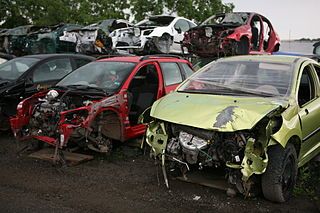From Guest Blogger Jordan: China Plans to Scrap Millions of Cars In an Effort to Reduce Pollution

According to a statement issued by the Chinese Government, authorities have decided to take a more direct approach on this problem, and try to resolve it by withdrawing millions of vehicles from service. The government has announced that it intends to take nearly 6 million off the road by the end of the year, in a desperate attempt to cut motor vehicle emissions, and prevent further deterioration of air quality.
Most of the vehicles that will be decommissioned are currently in operation in the northern part of the country, since northern regions are the ones that are suffering from poor air quality the most. About 330,000 vehicles will be withdrawn from the country’s capital, Beijing, whose air pollution has reached critical levels recently. According to China’s Ministry of Environmental Protection, 31% of air pollution in China is caused by CO2 emissions from motor vehicles. As many as 660,000 vehicles will be taken off the streets of the Hebei province, where a few of the worst-affected cities are located. Authorities will withdraw 160,000 vehicles from Shanghai, China’s most populated city.
Once the withdrawal of these 6 million vehicles ends, China plans to start taking off another 5 million next year, bringing the total number of high-polluting vehicles that will be decommissioned to about 11 million.
At the moment, 7.8% of the vehicles that are in operation throughout the country don’t meet China’s emission standards, according to the Ministry of Environmental Protection. One of the targets that authorities have set in terms of improving air quality, is reducing the emission of sulfur dioxide by 2% each year, and cutting nitrogen oxides emissions by 5% annually. It’s tough to tell whether this withdrawal action will help the government meet these goals, considering that there have been a few similar targets in the past couple of years that have not been met.
On top of these efforts, some of the largest cities in China will limit the number of vehicles that can be registered. For example, Beijing will reduce the number of new license plates by 40% to 150,000 this year. Shanghai, Tianjin, and Guangzhou are taking similar steps. Although these actions are meant to improve people’s health, many residents are complaining that these types of restrictions affect their quality of life, and are urging the government to increase investment in road infrastructure, instead.
